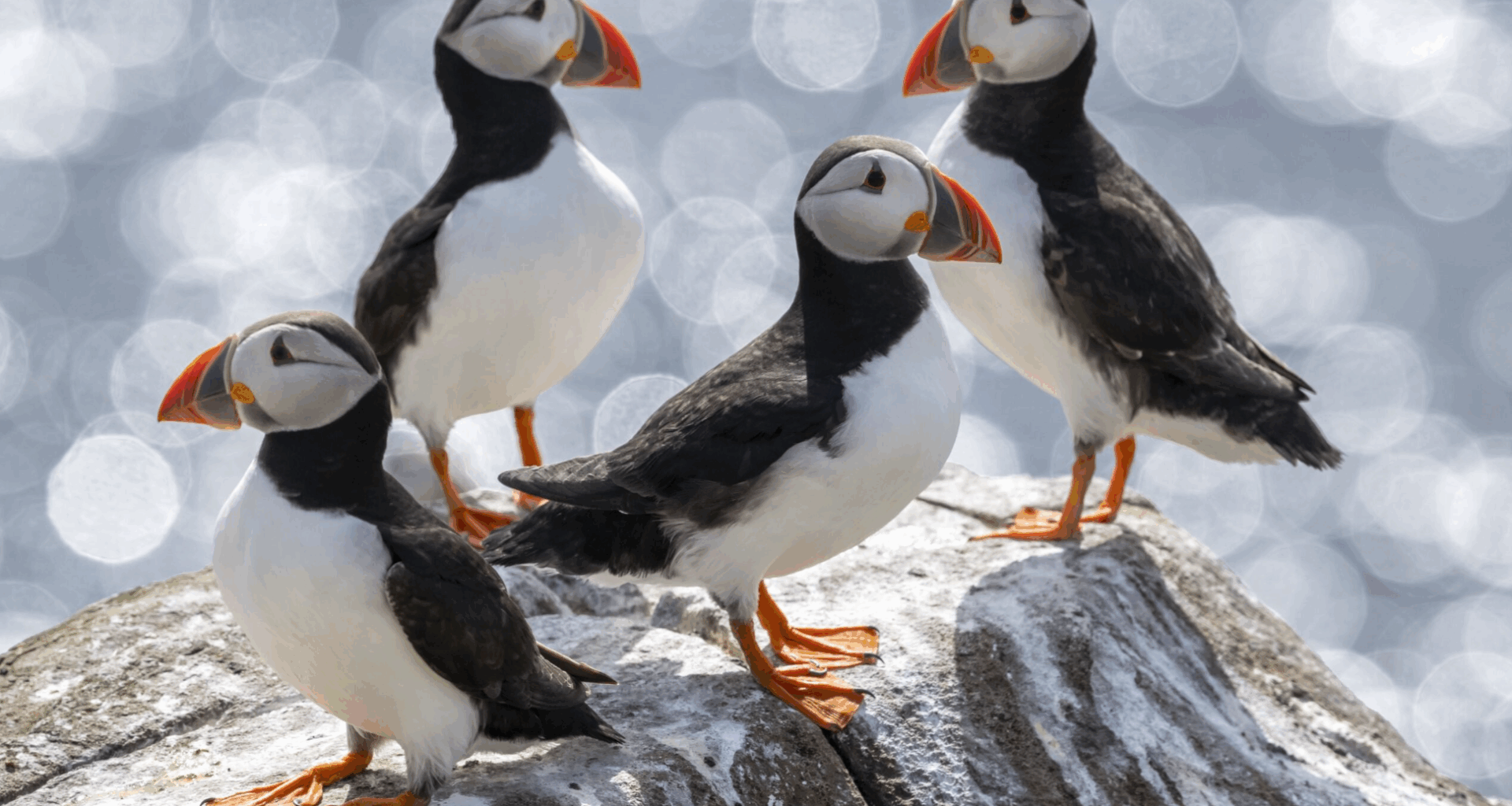13 May 2025
We look into the Great Puffin Brexit Bonanza, as the critical count for this vulnerable seabird gets underway on Northumbria’s Farne Islands.
 National Trust Images
National Trust Images
Let’s face it, the news agenda isn’t exactly cheerful. More than a few high-profile reporters are going on record in recent weeks to say yes, they too are turning off.
It can just get a little bleak can’t it?
But worry not. The ultimate antidote is in store and coming up right now for you on Channel 4 News.
Puffins.
As a couple of commissioning editors said to me as we pitched the story – “What’s not to like?” And “who doesn’t love a puffin?”
But it gets a whole lot better. We haven’t simply visited and filmed these remarkable, slightly comic “sea parrots”. We also bear glad tidings of great joy for puffins – and you!
Just last week the birds received one great big fat boost, thanks – of all things – to Brexit.
More on that in a second. But first to the Farne Islands off Seahouses, on the wide open emptiness of the Northumbria coast.
Courtesy – who else – of the redoubtable Billy Shiel who has been ferrying tourists and wildlife rangers back and forth to these low jagged rocky outcrops for who knows how long?
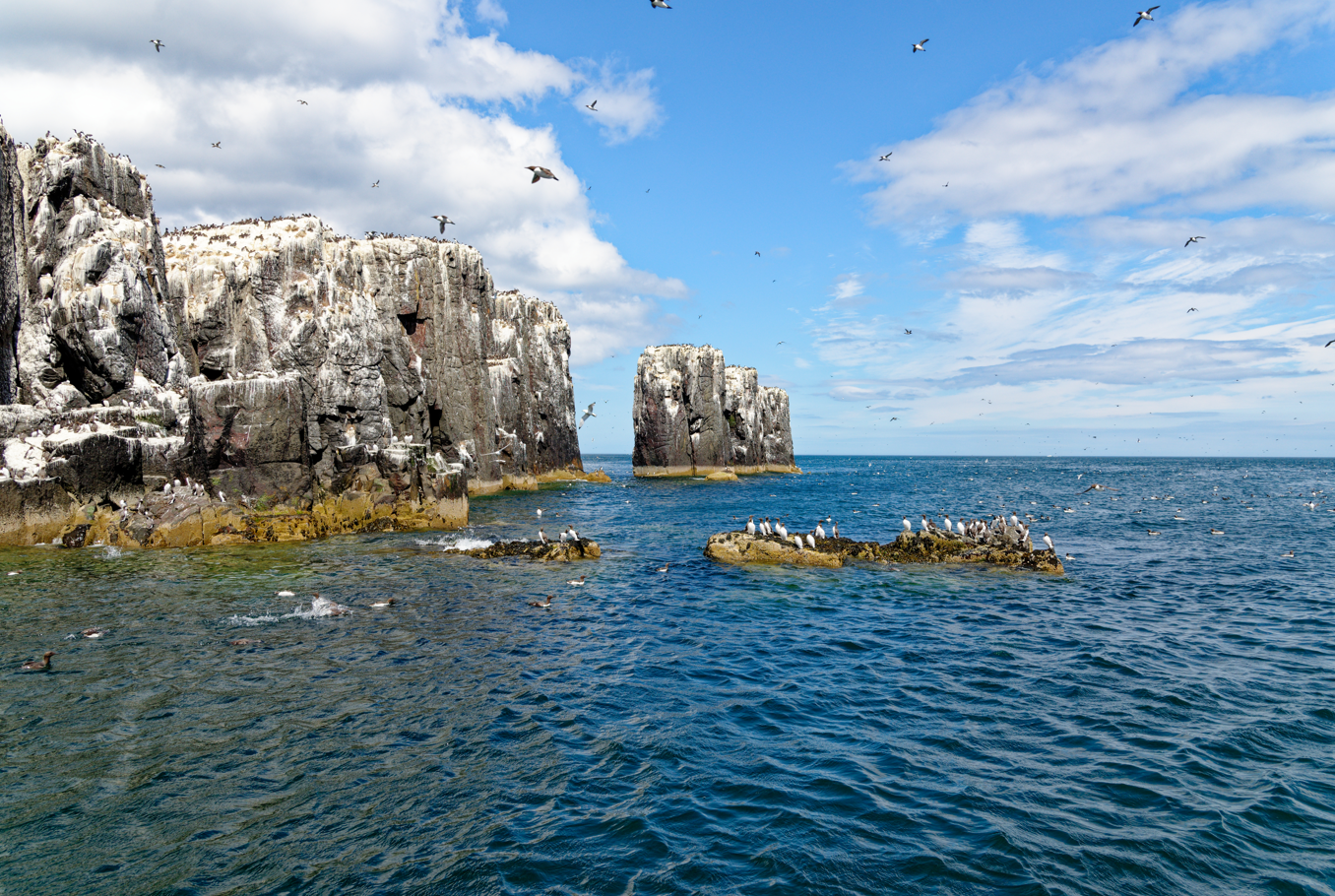 Farne Islands
Farne Islands
Stewardship of puffin island
Billy has been at it for 40 years or so, but his family overall for more than a century, happily outstripping the National Trust’s 100 years of stewarding these 28 precious rocky outcrops.
Like the puffins, among the 200,000 seabirds gathering each summer to breed here, Billy is part of the scenery.
So the National Trust has invited the national media to visit, during this breeding season, where the critical puffin count is underway. All part of the celebrations of a century of caring and protecting these islands for the seabirds breeding here.
It‘s been tough in recent years. All seabird populations had to come through bird-flu, hard on the heels of the human Covid pandemic which shut the islands and made monitoring numbers extremely difficult. The images of white protective-suited wardens collecting bird carcasses on the Farnes during the avian flu outbreak stay in the mind.
However the news is currently good on numbers – or at least the news was good at the count last year, which was the first in five years because of Covid and bird-flu. It showed numbers were up 15% and stable at around 50,000 on the last 2019 census.
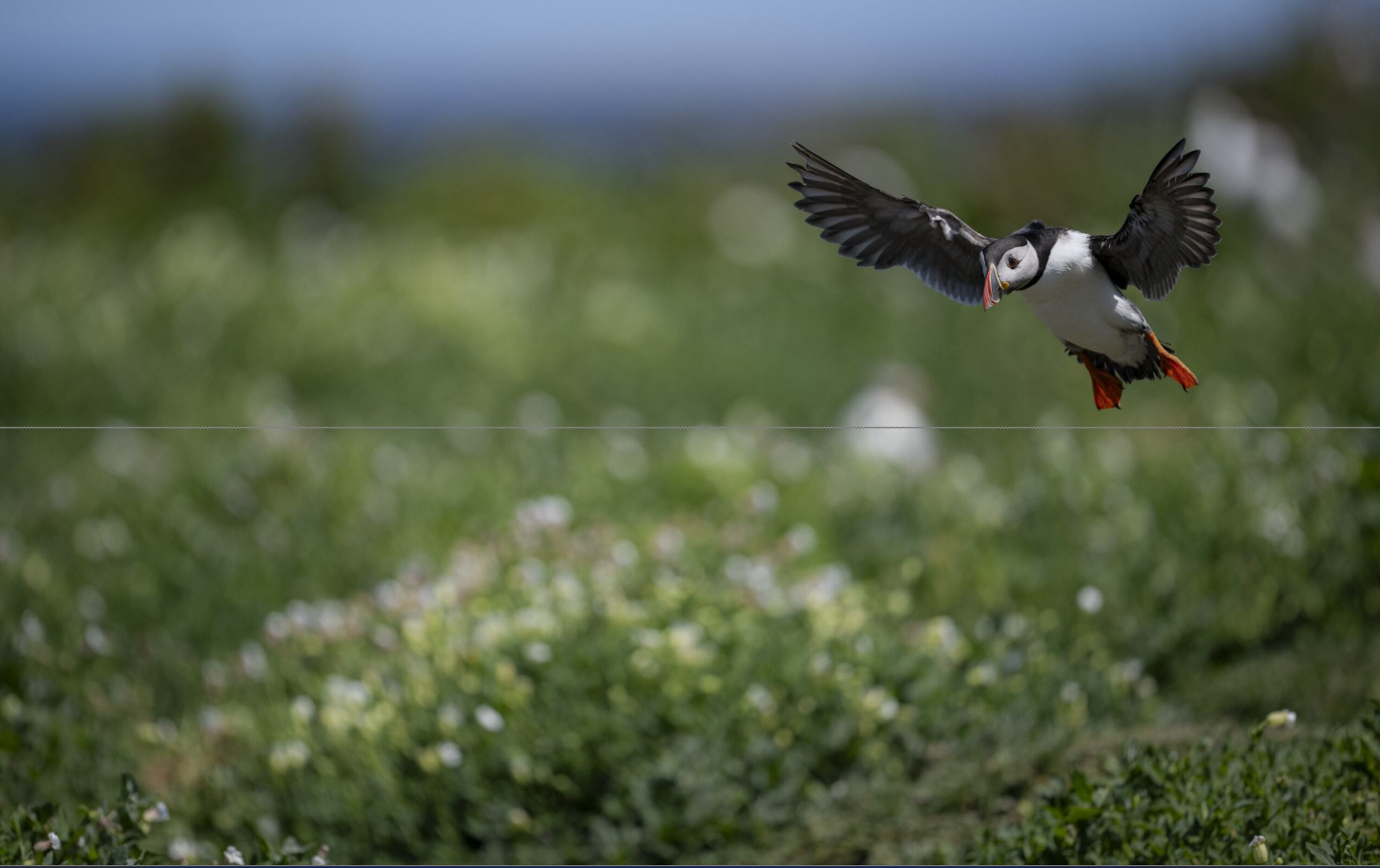 National Trust Images
National Trust Images
But counting these birds is not without challenges.
They excavate pretty serious nesting burrows atop the jagged cliffs, where their one chick, known as a puffling, should be safe from foxes, rats or predating gulls. Parents pair for life and simply throw everything they’ve got into raising the season’s one precious puffling.
Which of course renders populations vulnerable to unwanted changing conditions.
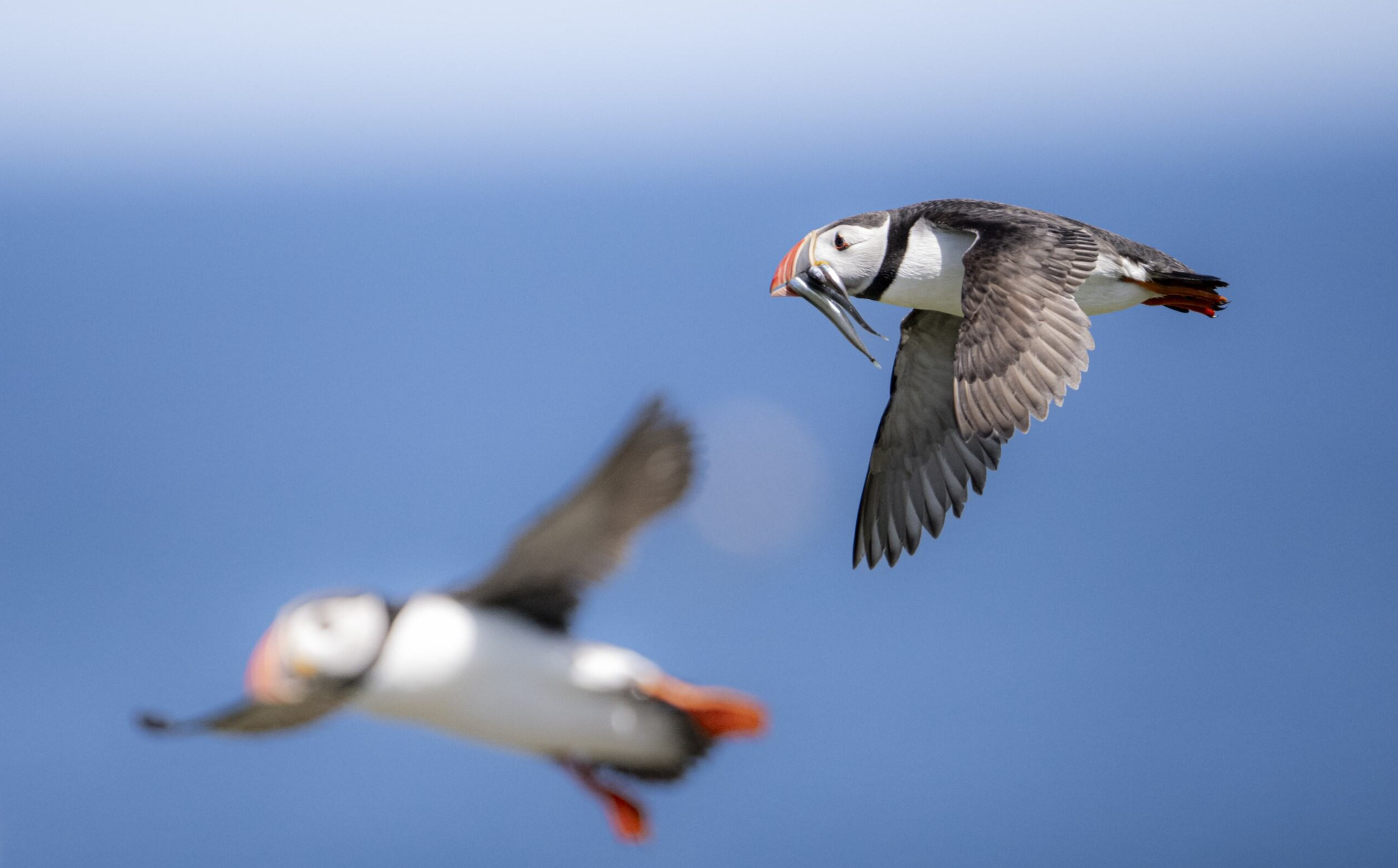 National Trust Images
National Trust Images
Where does Brexit come into it?
And they’re also vulnerable to something else. Small, silvery and assembling into shoals of hundreds of thousands: the sand eel.
Puffins – like many other of our seabirds – are almost wholly dependent upon these small fish. Remember those alluring photos of puffins with several tiny eels in their brightly coloured bills? Yup – those are sand eels.
This struggle brings us to the Great Puffin Brexit Bonanza. Obviously.
This government, along with the previous Conservatives who started it, have managed to fend off EU attempts to plunder sand eel shoals for – of all things – turning them into pig food. In particular the Danes who have the largest such fleet.
Brexit gave UK governments the chance to protect these vital seabird food stocks from foreign plunder. The Tories went for it and the current Labour government recently won a landmark victory which upheld the UK fishing ban in our waters against an EU legal challenge.
The RSPB Chief Executive Becky Speight celebrated the landmark judgement, saying:
“We now expect the UK government and the EU to move forward and make this closure permanent. Safeguarding sand eel stocks is a key part of the jigsaw that will help set our puffins, kittiwakes and the wider marine environment on the path to recovery.”
It is also a remarkable example of how Brexit in practice can allow the UK government to go against EU big agribusiness when it comes to protecting the environment.
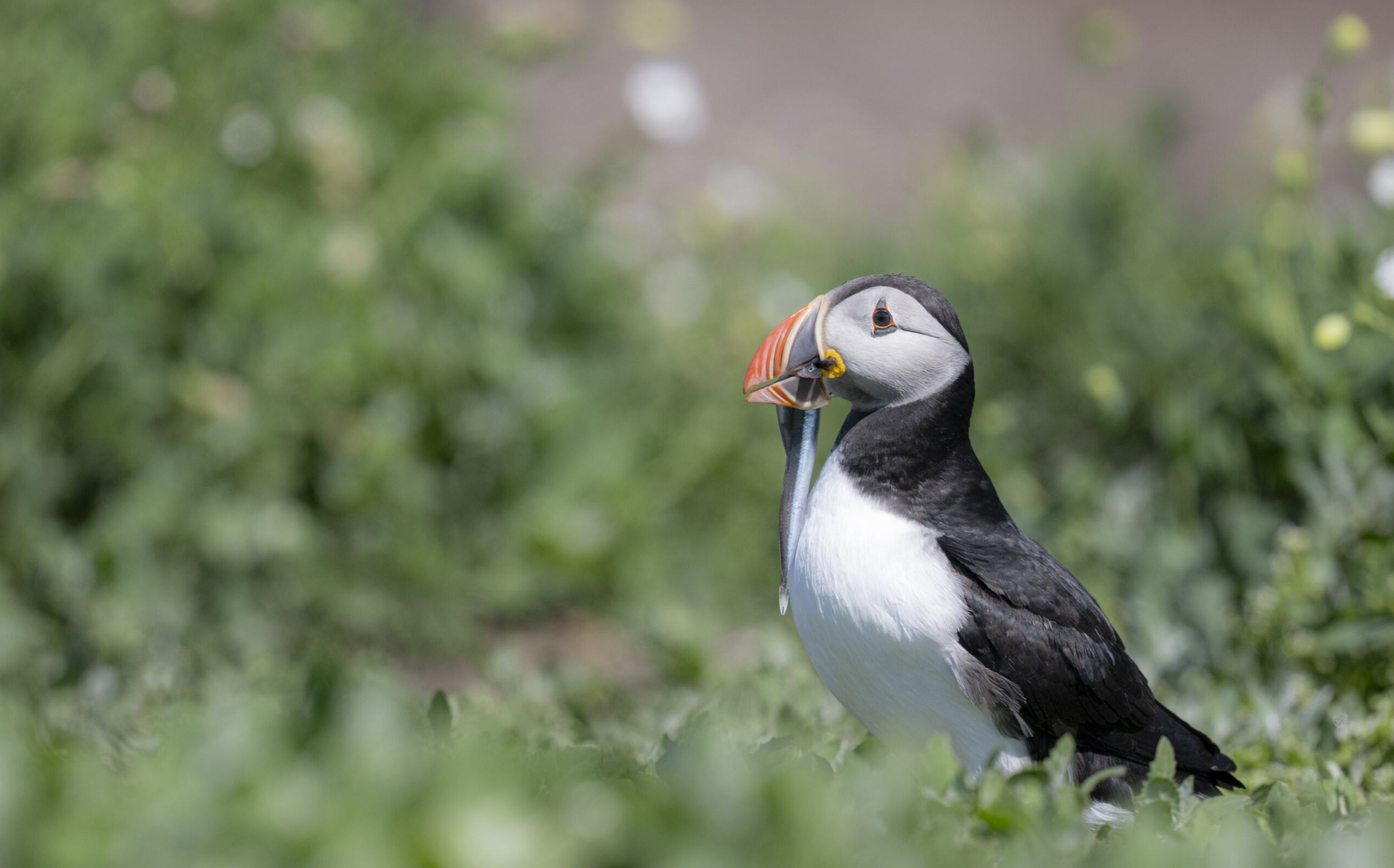 National Trust Images
National Trust Images
Many would say that is a power which has been more talked about than actually used, but in this case, with regards to sand eels, things are very different.
So there is a better chance now that in years to come, sand eels stocks will remain healthy, allowing those devoted puffin parents to feed their single puffling offspring for generations to come.
Watch more:
Exclusive: Threat of losing certain bird species altogether – new data shows
Authorities crack down on illegal wildlife trade
Wildlife populations down 73% in 50 years, says WWF
